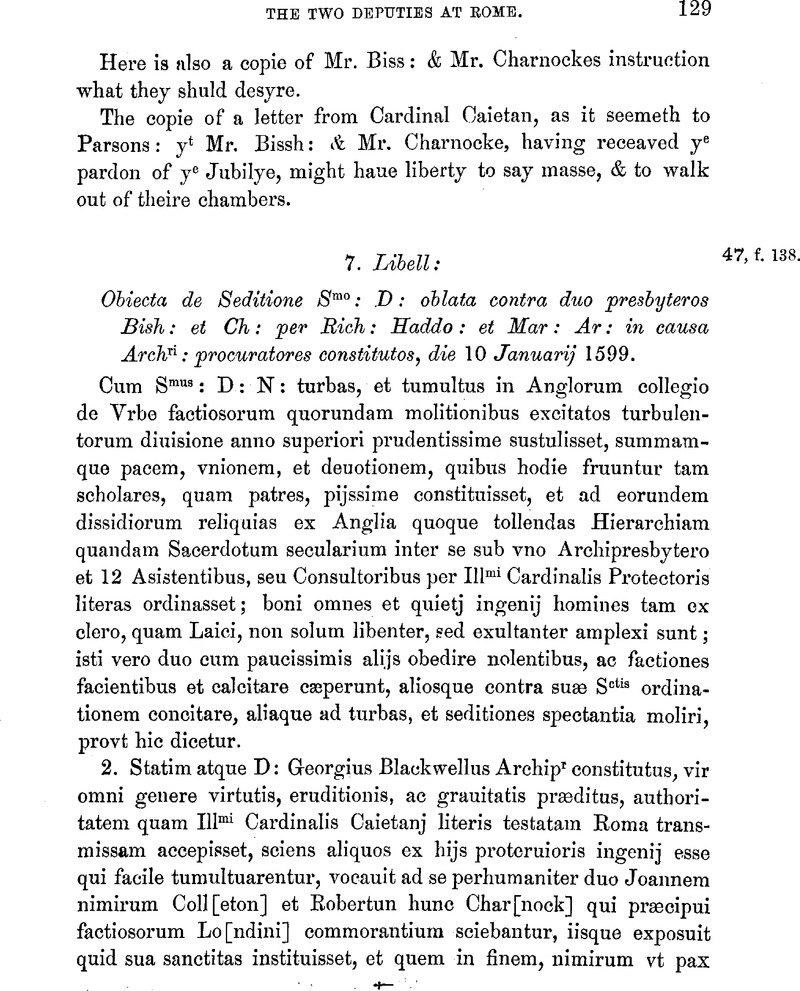No CrossRef data available.
Published online by Cambridge University Press: 24 December 2009

page 133 note a Something here must be incorrectly copied.
page 133 note b Word obliterated by damp.
page 134 note a A translation of this letter was printed by Parsons in his Briefe Apologie, f. 125.
page 135 note a The translation which Parsons gives of the greater part of this letter is curiously wide of the original. “Yet cannot we omyt to alleage,” he writes, “one peece of a large, godly, and zealous letter which M. Licentiate Wright, deane of Cortrac, in Flaunders, a man of knowne learning and merits, who wrote about this matter unto the Protector in these words” [Margin, Nov. 10, 1591 (sic.)]: ”Videt scio Illustrissima Dominatio tua quantum res ista perniciosa, etc. Your Grace, I know, doth wel se how great mischief this matter is like to bring unto our English church if it be permitted, and how great trouble and molestation it will breed unto your grace (in governing us) except as we hope remedy be put by diligence at the beginning” (Briefe Apologie, f. 126.)
page 135 note b This sentence, beginning with the words “hoc affirmare ansim,” is rendered literally in Parsons’ version, but he adds: “and no marvaile for that these men being privy to all their secrets are no less malitious against them then the Tery heretiks themselues.” Parsons, in his translation, does not, however, name Bishop and Charnock, as in the Latin.
page 136 note a From this point Parsons’ English is in exact agreement with the Latin copy.